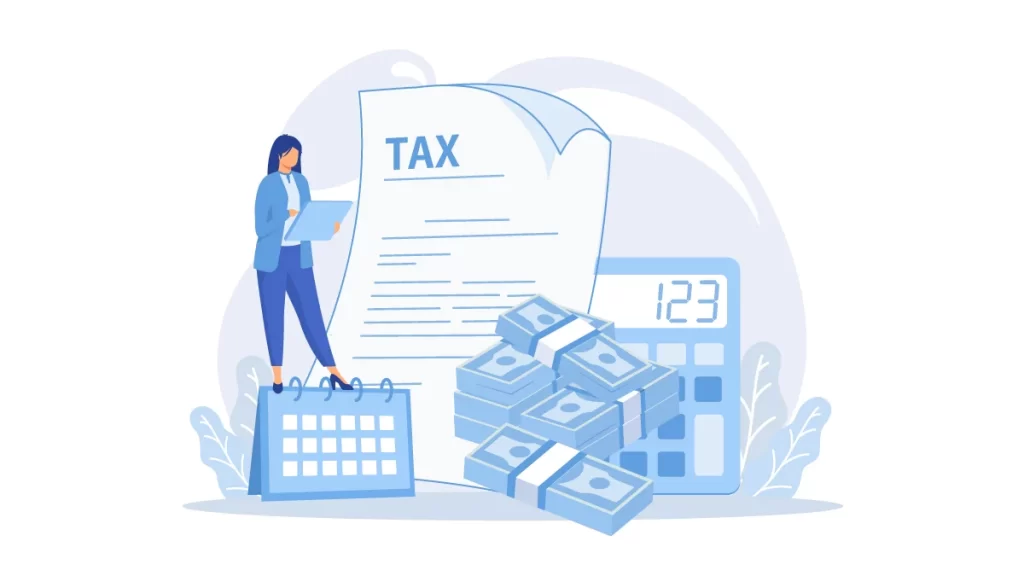Did you know that governments worldwide need taxes to function well? Even though people in the United Arab Emirates (UAE) don’t pay taxes on the money they earn, the country has started using other types of taxes lately. For example, starting on January 1, 2018, VAT in UAE began using value-added tax (VAT). Let’s read more information about UAE VAT 2024!
What is VAT in UAE?
VAT is a tax on goods and services purchased and used in the UAE. It is added each time something is sold. Buyers pay the tax, and businesses collect it for the government.
Why did they bring in VAT in the UAE?
The UAE government provides good public services like schools, healthcare, and more. Counting VAT helps them get money from different places. This extra money ensures they can continue to show a good standard of living in the UAE.
What’s the VAT rate in UAE?
The VAT rate in the UAE is 5%. However, some items, like specific goods and services, are exempt from this tax.

How does VAT in UAE work?
Let me explain with an example:
Think of a company making phones and selling them to another company that sells many things (wholesaler). The wholesaler adds more money and sells it to a shop (retailer). The shop adds extra cash and sells the phone to you, the person who wants it (the end consumer). The UAE government puts a 5% tax on these sales of goods and services.
| Particulars | Manufacturer | Wholesaler | Retailer |
| Sale price | AED 100 | AED 200 | AED 300 |
| VAT on sales @5% | AED 5 | AED 10 | AED 15 |
| VAT paid on purchases | Nil | AED 5 | AED 10 |
| (VAT on sales – VAT paid on purchases) | AED 5 | AED 5 | AED 5 |
In this example, they add VAT every time they sell something. And the seller, who is signed up for it, gets some money back (or a refund) for the VAT they paid when buying things.
VAT registration in UAE
In the UAE, if a company sells or buys goods worth over AED 375,000 a year, it must register for VAT. However, if a company sells or buys stuff worth more than AED 187,500, it can choose to register for VAT. Companies can easily register for VAT on the FTA’s (Federal Tax Authorities) website.
Different Kinds of Goods and Services under UAE VAT
Regular Things(5% VAT)
This includes everyday things and services charged a 5% VAT.
No-VAT Things(0% VAT)
Some items don’t have VAT added, but businesses can still get back some of the tax they paid for making or selling them. This category includes specific education and healthcare services, things sent outside the GCC, precious metals like gold and silver, and international transportation services.
Special-No-VAT Things(Exempt)
These are things or services that don’t have VAT, and businesses can’t get back the tax they paid when dealing with them. Examples are homes, empty lands, public transportation, life insurance, and certain financial services. If a business deals with these, it can’t charge VAT and get back any VAT it paid for doing business with these items.
Deemed Supplies
These are specific activities or transactions where businesses still need to add VAT (Value Added Tax), even though these activities don’t typically count as selling something. In the UAE, this includes when:
- A business gives away something it owns without charging for it.
- A business moves its goods from the UAE to other Gulf countries that use VAT or brings goods into the UAE from those countries.
- A business uses something it bought for itself (not for selling or making products) but has gotten a tax break on buying it.
Out-of-scope supplies
Out-of-scope supplies are sales or transactions to which the VAT rules don’t apply, according to the UAE’s tax authorities. This means they’re not considered when calculating VAT in UAE.
Input Tax in UAE VAT
Input tax is the tax businesses pay when they buy something or bring goods into the country. In the UAE, companies must keep their purchase receipts and import papers to get back the tax they paid on what they bought.
VAT Returns in UAE
In the UAE, if a business sells or buys things and makes more than AED 375,000 a year, it must register for a VAT tax. However, if a company makes more than AED 187,500, it can decide to register for VAT independently. Businesses can quickly sign up for VAT on the FTA’s website.
A UAE VAT course offers numerous career opportunities across the GCC countries. It equips you with practical knowledge of VAT, simplifying the complexities of VAT processes for businesses. At Finprov, we designed our courses to cater to a diverse audience, from fresh graduates to seasoned experts. Our training programs impart the critical skills necessary for swiftly securing lucrative roles, supplemented by our dedicated placement assistance for our learners.
Our comprehensive advanced UAE VAT curriculum includes critical topics such as the foundational principles of VAT, detailed operational insights, an exhaustive guide to the VAT registration process, the implications of VAT on imports and exports, in-depth coverage of invoicing and documentation norms, a robust understanding of VAT compliance and filing obligations, mastery over accounting entries, best practices for record-keeping, and knowledge on avoiding penalties. Mastering these domains can unlock many career paths, such as roles in VAT consultancy, finance management, senior accounting, tax execution, VAT expertise, billing coordination, sales accounting leadership, or various critical administrative capacities.




















